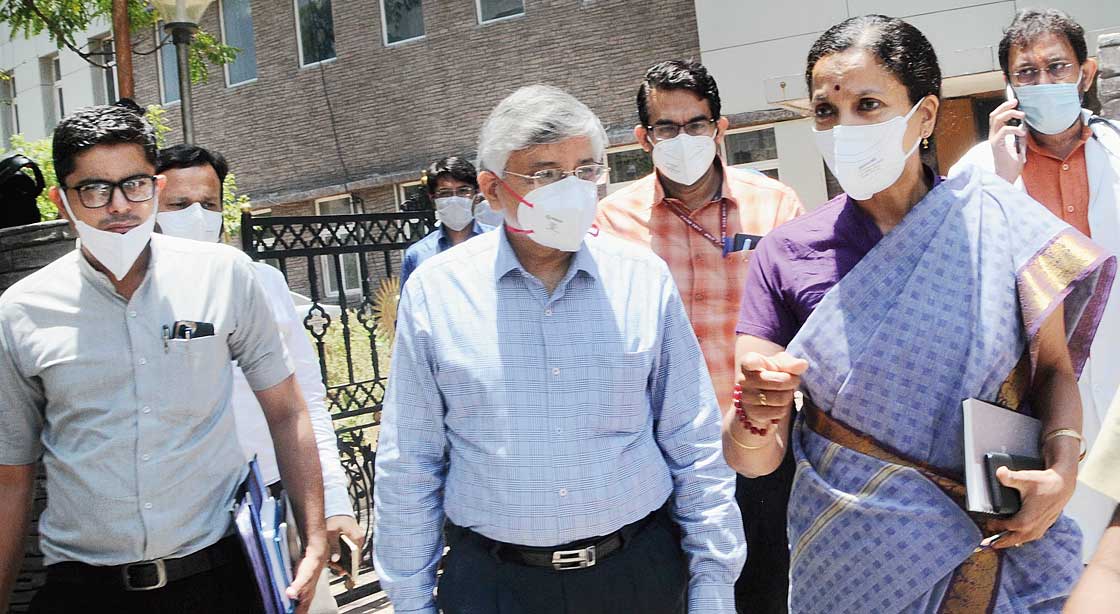Patients with mild or moderate symptoms of Covid-19, including those treated for fever or with oxygen support, may be discharged from hospital after recovery without viral diagnostic tests, the Union health ministry has said in revised discharge guidelines.
The revisions announced on Friday — along with the 12-day-old home isolation rules for patients with mild or no symptoms — could lower the number of patients in Covid-care centres and the use of diagnostic tests, experts said.
Until now, under the ministry’s guidelines set in mid-March, patients could be discharged only after they had tested negative twice, 24 hours apart, in the standard diagnostic test that looks for viral genetic material.
Under the revised guidelines, patients with “very mild or mild” symptoms may be sent home after 10 days of the onset of symptoms if they have no fever for three days. These patients would need to follow the home isolation rules for seven more days. Under the home isolation rules, released on April 27, these patients would need to have homes with adequate space to allow isolation of the infected person and quarantine of other family members. Another prerequisite for home isolation is a caregiver 24x7.
Patients with moderate disease may be discharged 10 days after the onset of symptoms if they do not develop fever or breathlessness and do not need oxygen support, provided the symptoms have disappeared. Moderately ill patients who develop fever or need oxygen support may be discharged after they are free of symptoms and do not require any oxygen for three consecutive days.
Patients with severe disease will be discharged only after they have recovered from the symptoms and tested negative in one viral diagnostic test.
Doctors involved in observing patients with mild symptoms and treating those with severe disease said the guidelines would help reduce the load on Covid-care centres at a time the number of hospitalised patients is steadily increasing.
The health ministry on Saturday recorded 3,320 new Covid-19 cases, raising the number of confirmed cases to 59,662, including 17,847 patients who have recovered and 1,981 who have died.
The number of Covid-19 patients in hospitals has increased more than five-fold over the past 28 days, from 7,300-odd on April 11 to 39,834 on May 9.
“Letting patients go home on the basis of clinical features rather than the diagnostic test is an excellent idea,” said a senior infectious disease specialist treating Covid-19 patients.
“We have many patients with no symptoms who just sit in hospital waiting to turn negative in the test. This is a waste of resources.”
The test, intended primarily for diagnosis of the infection, looks for tiny amounts of any residual viral genetic material and amplifies it.
“This is a diagnostic test – and should ideally not have been prescribed as a discharge test,” said the specialist, who requested anonymity.
However, health officials and other diagnostic experts argued that while not ideal, the diagnostic test appeared the best option in the absence of any other tool.
“Yes, ideally, discharge should be based on the patient’s clinical condition,” said Naveen Dang, a senior microbiologist and diagnostics specialist in New Delhi.
“But the test was likely prescribed because there was a need to ensure that infected people were not throwing out the virus.”
Patients with Covid-19, depending on whether they have mild, moderate or severe disease, are currently distributed among Covid-care centres, Covid health centres and dedicated Covid hospitals across the country. Severe cases are housed in the dedicated Covid hospitals.










